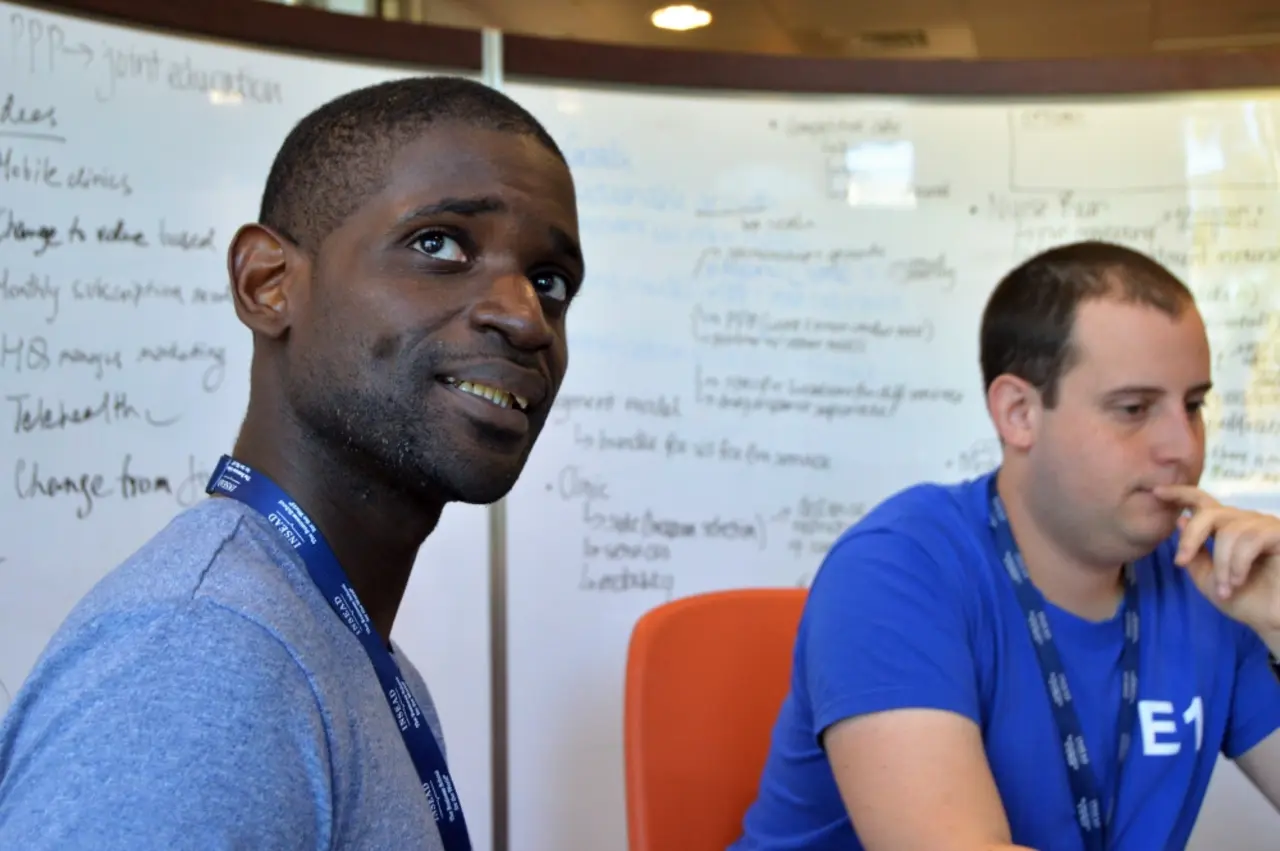
Using strategic frameworks for social good – INSEAD students help South African healthcare clinics develop a strategy for growth.
At INSEAD, promoting business as a force for good starts in the classroom, where innovative teaching approaches prepare students to transform business and society. Under the learning pillar, the Hoffmann Global Institute for Business and Society supports these innovations as part of our effort to strive to educate inspired, diverse and analytical leaders who create value both for their organizations and society.
The Master Strategist Day, or MSD, is an excellent example of engaging teaching innovation. And this year, the Hoffmann Institute is helping point MSD squarely at positive impact for business and society by supporting student work in vulnerable communities.
To understand how this will be accomplished, it is important to understand MSD. Part of the core strategy course in the INSEAD MBA programme, MSD challenges students to practice strategy with a real organisation and encourages them to apply frameworks they’ve learned in class to make a meaningful difference.
To prepare for MSD, students conduct a detailed analysis of a specific industry in the weeks leading up to the event. On the day of MSD, they divide into sections to analyse one of the organisation’s pressing strategic issues. Then, each section develops recommendations for the organisation with support from Bain & Company mentors. At the end of the day, students representing each section present ideas to the organisation’s CEO and a panel of judges from INSEAD, with one section taking top honours for their work. Hoffmann Institute Executive Director Katell Le Goulven was part of the jury panel.
This year, the organisation selected for MSD was the Unjani Clinic, a network of nurse-owned and nurse-operated healthcare clinics in South Africa. Unjani provides affordable care to underserved communities. The MSD strategic challenge centred on how to grow Unjani’s network of clinics to 1,000 by 2030, with a sustainable funding model built in.
Adding a new dimension to MSD, MBA students will bid for a ‘Business as a Force for Good Practicum’ as part of their electives that will involve hands-on work with the Unjani Clinic in South Africa. Students will identify knowledge gaps and work on-site to train to nurses leading the clinics. A team of PhD students will accompany the group and conduct research that will inform Unjani’s growth strategy.
The newly launched Hoffmann Global Institute for Business and Society provides financial support to the Practicum students who will travel to South Africa and work on the ground. “This is a perfect illustration of what we are trying to facilitate in the Hoffmann Institute under the ‘learning pillar’ of our strategy,” says Katell Le Goulven, Executive Director of the Institute. “The ultimate outcome is to inspire and equip leaders and managers to integrate social and environmental impact into the heart of their businesses. We want to put students in contexts where they’re using both their brains and their tools to address issues. We want to peel off biases and open minds.”
Associate Professor of Strategy Ithai Stern chose Unjani after studying and writing a case study about the organisation with Ridhima Aggarwal, the Salmon and Rameau HMI Research Program Manager here at INSEAD. Stern saw an opportunity. He says the goal was to “use the frameworks, the knowledge and the experience we’ve accumulated at INSEAD to help an organisation achieve a positive outcome. By utilizing business concepts and models, Unjani can provide primary healthcare to thousands and, in the future, millions of South Africans who wouldn’t otherwise have access to it.”
The lessons learned from the Unjani case are proving valuable for global business education. Stern is working with faculty in INSEAD’s core operations and marketing courses to teach the Unjani case, extending and enriching the learning that started in MSD.
Stern hopes that INSEAD’s relationship with Unjani will continue beyond this academic year. He says, “As long as we feel we are making a positive impact on the ground, and there is demand and willingness among our MBA students, we will try to send a team dedicated to Unjani. It’s in the interest of everyone to help organizations like Unjani become more efficient and realize their important goals.”
The Hoffmann Institute stands with Professor Stern. When organizations like Unjani thrive, it helps local communities thrive and contribute to healthy economic growth. We look forward to seeing the results from this trip to South Africa, and future MSD projects that deliver value to business and society.



